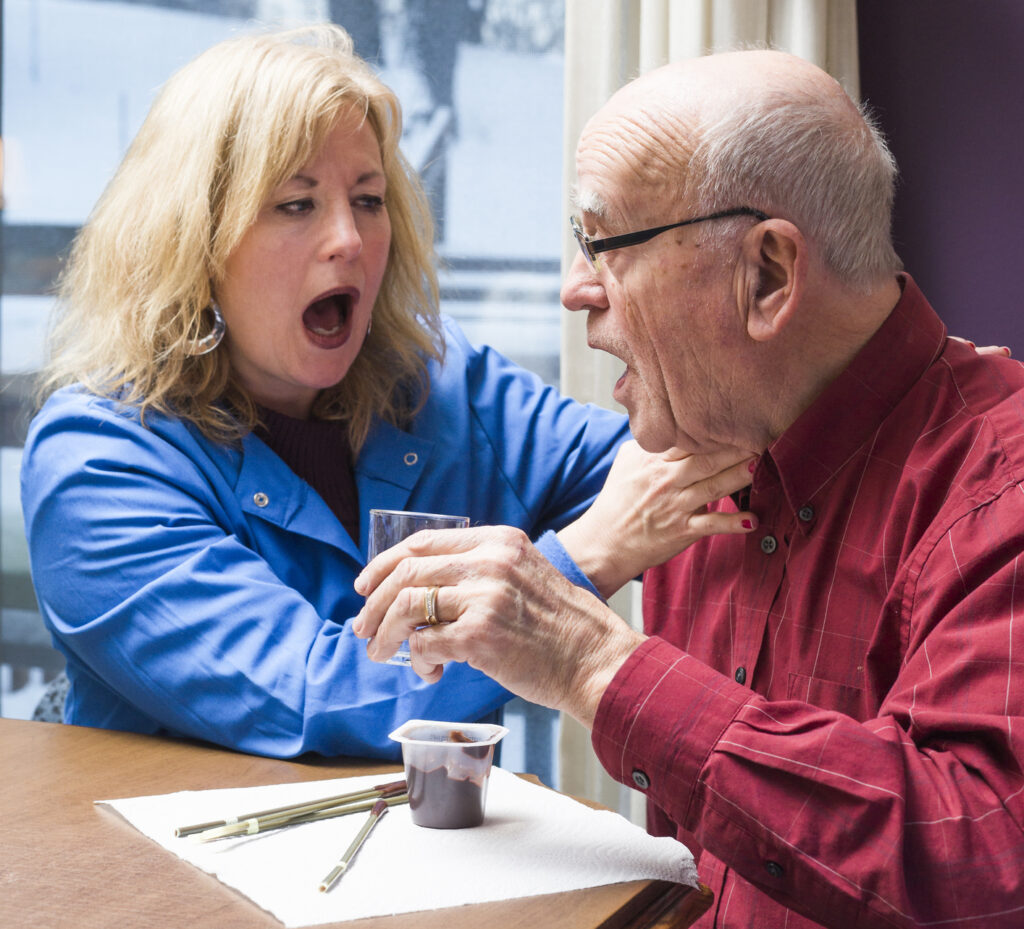Speech Therapy is a Gift for Stroke Survivors

Holidays often bring indulgence in our favorite things, whether that be eating, drinking, or celebrating. It also means higher stress, disrupted routines, and lack of sleep – and these factors contribute to a higher risk for stroke. In fact, more strokes occur between November and February than any other four-month period.
A recent study from the David Geffen School of Medicine at UCLA and the California Rehabilitation Institute suggests that not enough people are getting treatment for their speech problems following a stroke. “In the initial weeks after a stroke, the brain is ready to undergo maximum rewiring to get people back on their feet. Rehab therapy helps maximize this recovery, with higher rehab therapy doses helping more, but what we found in this study is that most patients are getting rather small doses of rehab therapy,” said Dr. Steven Cramer, a stroke neurologist and professor of neurology and the study’s lead author.
The study showed that three months after a stroke, only four of every 10 patients had received speech therapy. Speech therapists play a vital role in helping patients recover their ability to communicate and swallow after a stroke. When a stroke occurs, it can affect the language centers of the brain, making it difficult for patients to speak, understand, read, and write. This is where speech therapists come in to provide specialized therapy and rehabilitation to help patients recover these skills.
Here are some ways that speech therapists help patients after a stroke:
Communication therapy: Speech therapists work with patients to help them regain their ability to speak and understand language. Techniques such as repetition and language drills help patients improve their language skills.
Swallowing therapy: After a stroke, patients may have difficulty swallowing food and liquids. Speech therapists help patients relearn how to swallow safely and effectively through exercises and techniques which strengthen the muscles used in swallowing.
Cognitive therapy: A stroke can also affect a patient’s cognitive abilities, including memory, attention, and problem-solving. Speech therapists can provide cognitive therapy so patients can improve their cognitive function and regain their ability to communicate effectively.
Assistive technology: In some cases, speech therapists may recommend the use of assistive technology, such as speech-generating devices, to help patients communicate more effectively. United States Senator John Fetterman has been open about his use of captioning devices and speech-to-text transcription as part of his stroke recovery.
Education and support: Speech therapists provide education and support to patients and their families, helping them understand the effects of stroke and providing strategies for coping with the challenges of recovery.
For patients rehabilitating after a stroke, speech therapists provide specialized care to improve communication to enhance their quality of life. If you or a loved one is struggling with a speech or language disorder, CPT has therapists on staff who can help.
![CPT Rehab [logo]](https://www.cptrehab.com/wp-content/themes/cpt-rehab/images/logo.png)